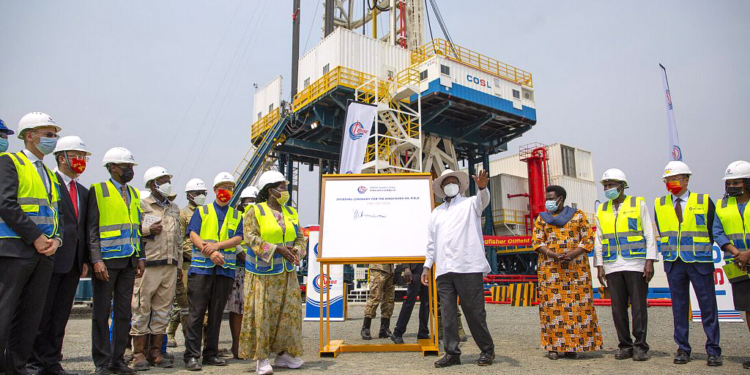Uganda has witnessed a remarkable surge in its mineral sector revenues, with the total value of mineral production jumping from UGX 19.92 billion in the 2020/2021 fiscal year to UGX 202 billion in 2021/2022.
This notable increase was highlighted in the country’s third Extractive Industries Transparency Initiative (EITI) report, which offers a comprehensive overview of the financial dealings within Uganda’s oil, gas, and mining industries. The EITI, a global watchdog based in Oslo, Norway, promotes transparency and accountability in the management of extractive resources.
The EITI report reveals that 20 mining companies out of 558 active license holders accounted for a substantial 98.82% of the UGX 202 billion in mining revenues during the reporting period. The companies, each remitting at least UGX 6 billion, have played a significant role in contributing to Uganda’s national coffers. These revenues stem from taxes levied on the extraction and export of key minerals, including limestone, iron ore, pozzolana, gold, and several others.
Limestone was the standout performer, with its value skyrocketing from UGX 223 million in 2020/2021 to UGX 93 billion in 2021/2022.
Iron ore followed closely, rising from UGX 4 billion to UGX 72 billion, while pozzolana, a volcanic ash used in cement production, saw a surge from UGX 506 million to UGX 17.7 billion. Gold also experienced a steady increase, with its production value rising from UGX 1.96 billion to UGX 3.42 billion.
Other minerals, including syenite, kaolin, and wolfram, also contributed to the sector’s growth, with wolfram making its debut in the report with a value of UGX 6.8 billion.
However, some discrepancies and gaps in reporting remain, particularly concerning certain companies that were not fully transparent about their production or export data.
Despite the positive financial outlook, the EITI report highlights ongoing challenges, particularly in the reconciliation of data between companies and government agencies. Gloria Mugambe, head of Uganda’s EITI Secretariat, explained that while much of the data comes from government agencies like the Uganda Revenue Authority (URA), verifying these figures with companies has proven difficult due to incomplete or delayed submissions. She noted that certain companies, especially those in the manufacturing sector, blur the lines between mining and production revenues, complicating efforts to separate extractive earnings from other industrial activities.
For example, Tororo Cement, a key player in the sector, holds a mining license for limestone but also imports clinker for cement manufacturing. The question of whether revenues from this company should be classified as mining or manufacturing is a subject of ongoing debate within the Multi-Stakeholder Group (MSG), a body overseeing Uganda’s EITI implementation. Similarly, discrepancies were found with companies like Virat Alloys, which holds an exploration license for tin but classifies itself as a steel manufacturing entity.
The government also faced hurdles in reconciling figures from certain companies that, despite meeting the materiality threshold for reporting, failed to provide adequate production data, leading to gaps in the overall financial picture.
Government’s Struggle with Contract Transparency
While the third EITI report shows progress, it also underscores Uganda’s struggles in fully adhering to the transparency requirements of the initiative. The report specifically notes that the government has not yet fully disclosed contracts it has signed with mining, oil, and gas companies, an essential part of the EITI’s standards. This lack of transparency has been a persistent issue, with Uganda receiving a “moderate” score for transparency during its recent EITI validation.
Mark Robinson, Executive Director of the EITI Board, emphasized the importance of contract disclosure, stating that it is a critical step in ensuring transparency and curbing corruption in the sector. Uganda’s failure to publish these contracts continues to draw criticism from civil society organizations, with Siragi Magara from Oxfam-Uganda stressing that the government must prioritize making these agreements public, as they are ultimately in the interest of Ugandans who own the country’s natural resources.
The growth in Uganda’s extractive sector is crucial for the country’s long-term economic development. The mining sector is seen as a key contributor to the government’s ambition of transforming Uganda’s economy from its current size of USD 53 billion to USD 500 billion in the next 15 years.
Do you have a story in your community or an opinion to share with us: Email us at editorial@watchdoguganda.com













